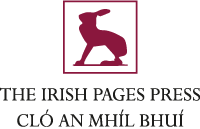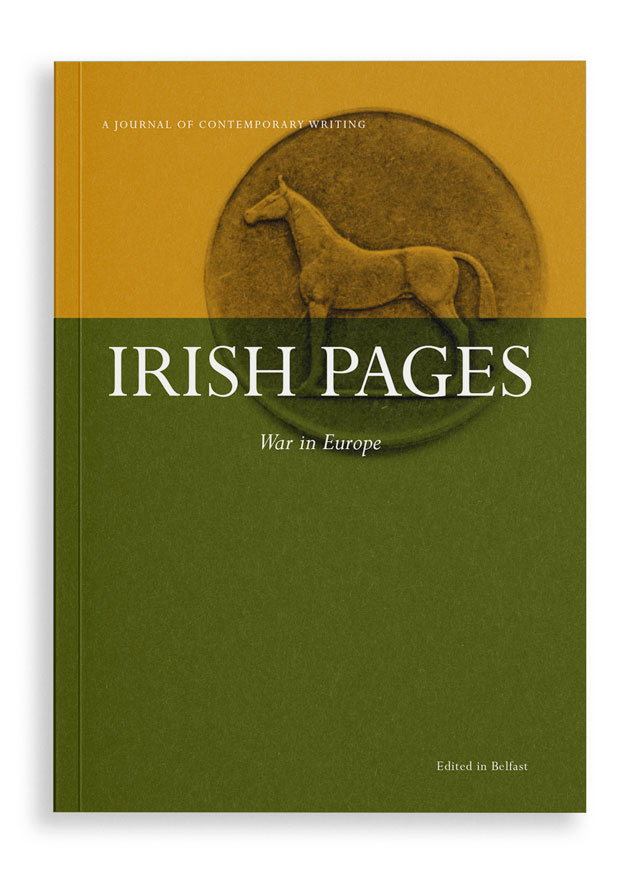Subscribe to Irish Pages
We want to deliver excellent literature directly to your door. Conveniently, we offer subscriptions to Irish Pages, a biannual journal, with a variety of options. You can choose to receive issues for one, two or three years. You can subscribe as an individual or as an institution of higher education, if you are affiliated with one. And you can even give the gift of an Irish Pages subscription to your friends and family.
$72.00 – $246.00
By subscribing to Irish Pages, you will receive our biannual journal as soon as it is published and available.
Each issue assembles a carefully edited mix of English, Irish and Scots, prose and poetry, fiction and non-fiction, style and subject-matter, in an overall fit aimed at a wide range of reading tastes. The cover theme suggests some of the content, and emerges from the editorial process – the blend of what is selected from submissions, and what is sought or commissioned.
Overview
Appearing twice a year, Irish Pages is a Belfast journal combining Irish, European and international perspectives. It seeks to create a novel literary space, North and South, adequate to the unfolding cultural potential of the island’s new political dispensation. The magazine is cognisant of the need to reflect in its pages the various meshed levels of human relations: the regional (Ulster), the national (Ireland and Britain), the continental (the whole of Europe), and the global.
Since its full-scale launch in 2003, Irish Pages has established itself as the island’s premier literary journal, combining a large general readership with outstanding writing from Ireland and overseas. With a print-run now standing at 3,000, the journal is also, increasingly, read outside Ireland and Britain. Widely considered the Irish equivalent of Granta in England, or The Paris Review in the United States, it offers an unrivalled window on the literary and cultural life of these islands – and further afield.
Each issue assembles a carefully edited mix of English, Irish and Scots, prose and poetry, fiction and non-fiction, style and subject-matter, in an overall fit aimed at a wide range of reading tastes. The cover theme suggests some of the content, and emerges from the editorial process – the blend of what is selected from submissions, and what is sought or commissioned.
In addition, Irish Pages includes a number of regular features: The View from the Lagan, an editorial commenting on cultural or political issues from Ireland and overseas; From the Irish Archive, an extract of writing from a non-contemporary Irish writer, or on a non-contemporary Irish theme; In Other Words, a selection of translated work from a particular country; and The Publishing Scene, a commissioned piece taking a critical look at some aspect of the literary world in Ireland, Britain or the United States. Each issue also contains an outstanding portfolio of colour photography from a leading photographer; an article on Belfast or Northern Ireland; work from at least one emergent or new writer; writing on the natural world; and a major essay of literary distinction on an ethical, historical, religious, social or scientific topic. There are no standard reviews or narrowly scholarly articles: the journal is most definitely not an academic publication. Irish Language and Scots writing are published in the original, usually with English translations or glosses.
Although Irish Pages is mainly a prose journal, poetry is, of course, a major component of the journal’s mix of genres. On average, about a third of contributors (10 or so poets), and about a fifth of each issue (35-40 pages) is given over to poetry, in both Irish and English, and including translations from other languages. Several issues have additionally carried a substantial essay on the poetic art by a noted practitioner. This distinct but circumscribed space for poetry reflects the view of both poet-editors that in the context of a generalreadership journal such as ours, a lean selection of poetry is likely to be read more attentively within the overall mix. The only criteria for inclusion in the journal are the distinction of the writing and the integrity of the individual voice. There are no favoured styles, themes, schools, publishers, critical hierarchies, ethnicities and so on. Equal attention will be given to established, emergent and new writers.
Some Different Things about Irish Pages
There are, in fact, very few literary journals that avoid reviews and cognate varieties of academic criticism (although we do publish the occasional “essay-review”, or critical essay). Why attempt what the Times Literary Supplement or London Review of Books will always do better? Irish Pages represents a new paradigm focussing entirely on the reading of “primary” writing, rather than its critical or “secondary” mediation.
We wish the journal to be read widely and each issue’s careful mix of genres and styles is essential to the magazine’s appeal outside the ghetto of the literati. There is an especial commitment – uniquely for Ireland and perhaps Britain, at least in a literary journal – to nature/ecological writing as well as creative non-fiction/the essay. And although each issue will carry at least one and often two pieces of fiction, part of the thinking behind this mix is to provide and antidote or an alternative to the enormous critical and commercial attention that is given to the various genres of fiction, at the expense clearly of other genres, whose historical/ethical/social value is surely no less.
Writing in Irish (and Scots Gaelic on occasion) is integral to the editorial mix. To date we have published poetry, drama and fiction in Irish; we have also published first translations as Gaeilge of a clutch of important essays by major Irish-language writers. We attempt to place the two languages in seamless juxtaposition, to suggest their parity in any definition of the “Irish” in Irish Pages. Outside the Irish language world per se, the publishing of Irish-language writing in journals is often tinged with tokenism; we pursue a much more active bilingualism.
One wider background aim is to give the journal a distinctly dissident edge, to inhabit “the space outside” the Pale of the Received – business-as-usual in all its (especially Western) forms: literary, intellectual, cultural, social, political. Thus, the journal has a particular (though hardly exclusive) commitment to work informed by “the ethical imagination”. We believe that there is a huge thirst for this kind of writing – writing of “high artistic consciousness”, but in the thick of the world and its dilemmas – and that it is immensely important for our increasingly complex global life. You might call it the literary equivalent of an NGO audience: all those readers for whom ethical issues count.
The Editors


